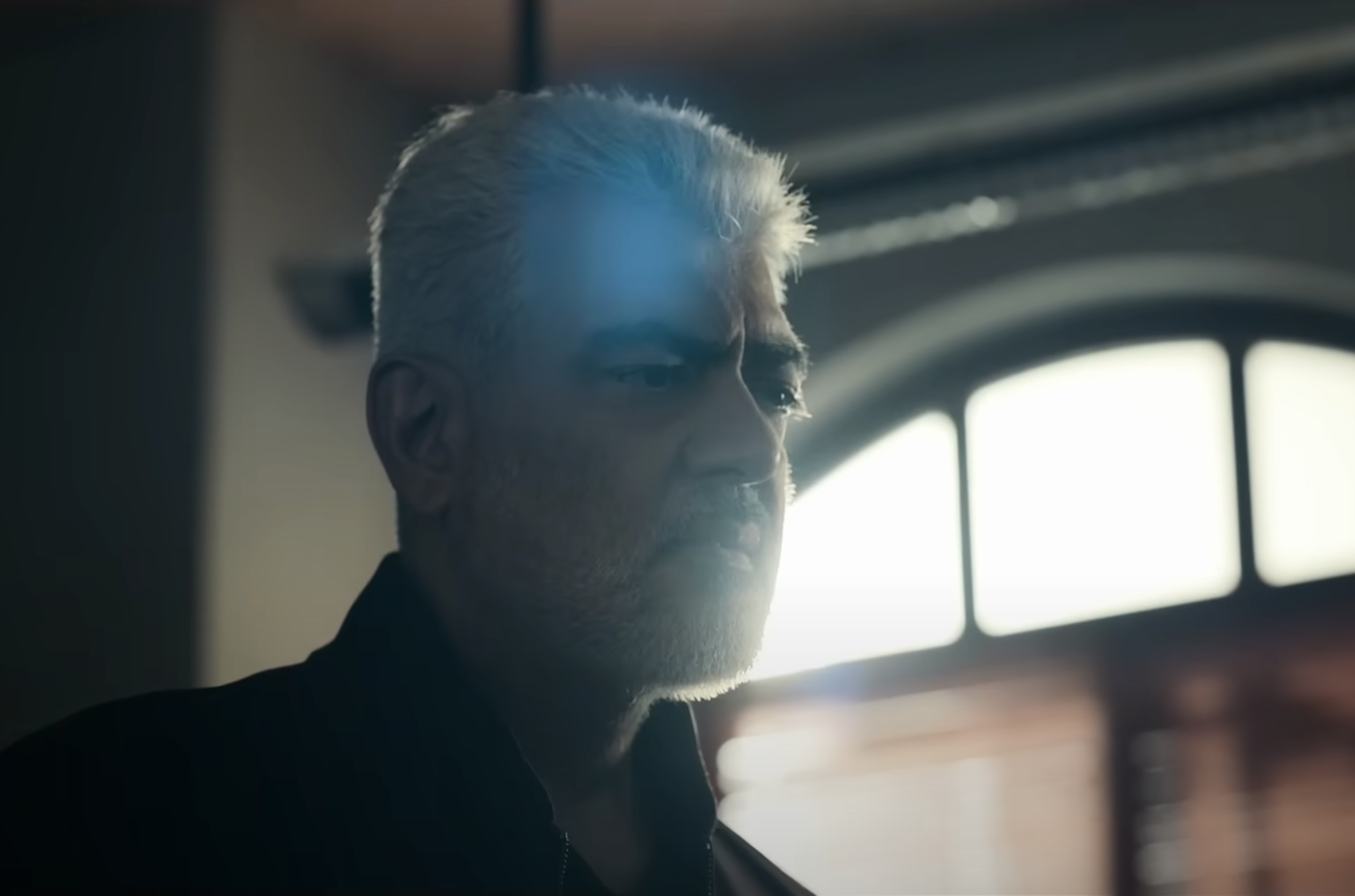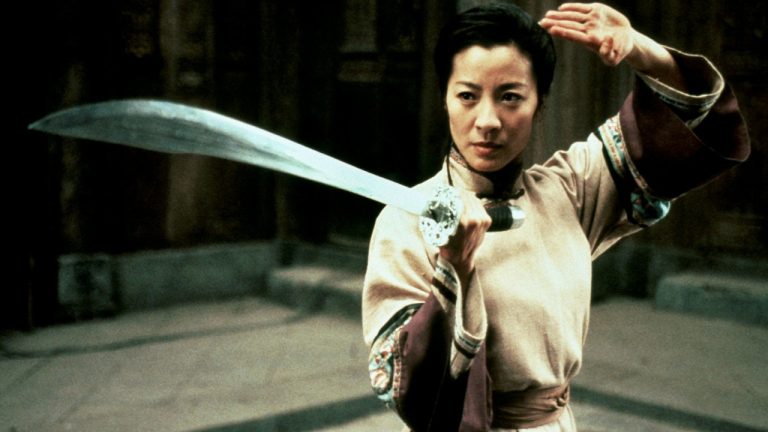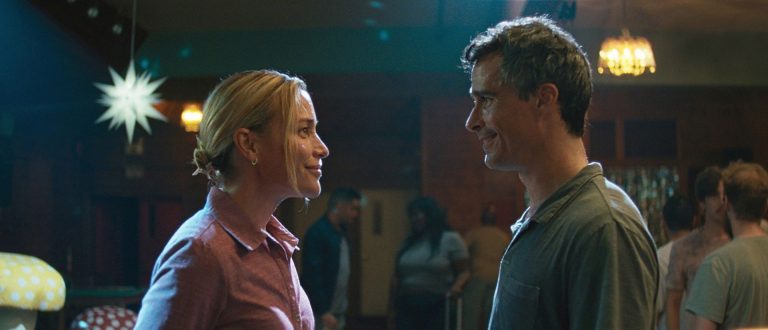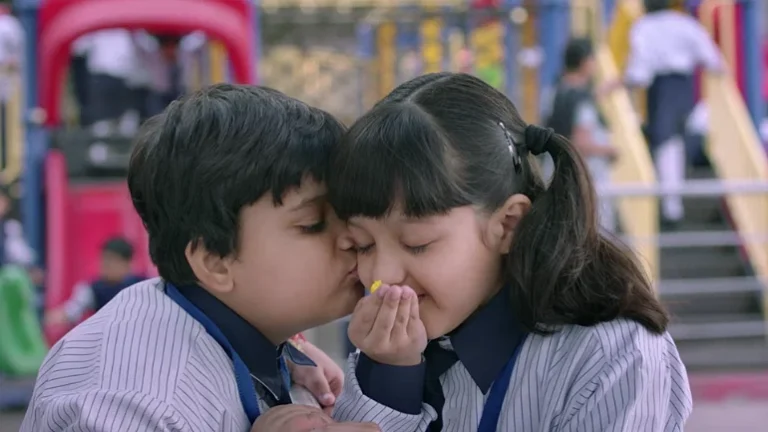A remake that took two years to make couldn’t entertain its audience fully for more than two hours and managed to stay on the right lane only for half its runtime. “Vidaamuyarchi” (meaning: Perseverance) is a Tamil road action film starring Ajith Kumar as Arjun, Trisha Krishnan as Kayal, Arjun Sarja as Rakshith, Regina Cassandra as Deepika, and a mix of some Indian and Azerbaijani actors. Directed by Magizh Thirumeni, the film attempts to deliver a gripping action thriller but ends up diluting its core by focusing on unnecessary emotional baggage.
Arjun, the protagonist, was a charming man in his early days but has grown bitter over time. Kayal, once drawn to his presence and personality in their youth, was deeply in love with him. That was twelve years ago. Now, the once-happy couple is struggling with their marriage, on the verge of separation. Before the divorce, an unexpected kidnapping happens during what was supposed to be their last trip together.
Arjun convinces Kayal to drop her at her parents’ home even though he knows she may have cheated on him and is planning to leave him for good. She openly admits that she no longer loves him. The couple has been through tough times, including a miscarriage, but that alone cannot be the sole reason for their imminent separation. However, the film insists on portraying Arjun as the ideal husband and Kayal as the confused, lost woman who fails to appreciate his perseverance.
A Remake That Loses the Original’s Essence
“Vidaamuyrchi” is the official Tamil remake of the Hollywood movie “Breakdown” (1997), starring Kurt Russell and Kathleen Quinlan, written and directed by Jonathan Mostow. The original film starts with a couple on a road trip in the middle of nowhere, who accidentally cross paths with a gang after a minor accident. Things escalated quickly, leading to the wife’s kidnapping. The plot revolves around how far the husband would go to save her.

The Hollywood original didn’t waste time justifying the characters’ pasts. We were introduced to them abruptly, and within minutes, the kidnapping took place. The focus was entirely on the husband’s desperate attempt to rescue his wife. There was no need to explain whether they had cheated on each other, what jobs they had, or why they were on a trip. But the Tamil remake stretches itself thin by adding unnecessary backstories, ultimately killing the suspense and tension that the original thrived on. Instead of making the audience wonder, what will happen next? The film merely wants us to sympathize with Ajith Kumar—for his perseverance and his driving skills.
In “Breakdown,” one of the most intense scenes is when Kurt Russell’s character steps into a bank, completely overwhelmed, struggling to think straight when asked to withdraw all his money to save his wife. The sheer panic, the helplessness, the realization that he is being controlled—his emotions were raw, and the audience felt every bit of his frustration. At one point, he locks himself inside the restroom, screaming in vain, unable to comprehend what to do next.
In contrast, Ajith Kumar’s character simply walks into the bank, grabs a knife, withdraws the cash, and walks out—calm and composed. There is no real tension, no sense of urgency. He later fights off the henchmen effortlessly inside a car, as if it were a video game, because, apparently, all the film needed was stylish camera movements paired with Anirudh’s background score. This blind trust in style over substance ultimately fails to transport emotions to the audience. The sequence where Arjun struggles to communicate with the locals at a cafe to inquire about his missing wife was new compared to the original and a bit effective, but again not fully convincing.
Emotionally Distant Performances
The younger version of the actors, portraying a happy and vibrant couple, felt distant and difficult to connect with emotionally. Their romantic moments lacked natural chemistry, making it hard to believe that these two people were once madly in love. On the other hand, their aged appearances worked well and fit perfectly in the emotionally heavy scenes leading up to their divorce—though those moments were brief and added only a slight depth to the flow of the film.
If the filmmakers had stayed true to the original’s Hollywood standards by replicating the film shot by shot, like what Michael Haneke did with “Funny Games,” or scene by scene, like what Spike Lee attempted with “Oldboy,” this could have been a somewhat good remake. Instead, the unconvincing performances from the lead actors left the audience checking their phones. The introduction and backstory of the villains (antagonists) add no real significance to the plot and only disrupts the screenplay. While adding more characters to extend the runtime is understandable, it ultimately feels unnecessary and forced.
Top-Notch Crew’s Effort
That said, the crew’s effort in showcasing Azerbaijan’s landscapes deserves appreciation. It serves as a case study on how to make desert landscapes look visually appealing for action sequences. The vast, empty roads, the harsh sun, and the yellowish surroundings create an atmosphere that should have elevated the tension in the film. But even the most breathtaking visuals cannot compensate for a lackluster screenplay.

The music composer subtly incorporates Western influences, enhancing certain moments that otherwise would have fallen flat. While cinematography and sound design are the film’s strongest aspects, the editor’s decision to chop down the first act was a brilliant move, making it slightly more engaging. Again, unfortunately, this effort is wasted on a mediocre chemistry that touches emotions as lightly as oil mixes with water.
Tamil Cinema’s Struggle with Foreign Remakes
This isn’t the first time a Tamil remake of a Hollywood film had the potential to authentically replicate the original but instead chose to Indianize it with unnecessary backstories, songs, romanticization, and glorification of the lead actors. A similar divisive response followed Tamil filmmaker Lokesh Kanagaraj’s “Leo” (2023) starring ‘Thalapathy’ Vijay, an adaptation of the graphic novel, “A History of Violence” (2005) directed by David Cronenberg.
Kamal Haasan’s “Thoonga Vanam” (2015), was a remake of the 2011 French thriller “Sleepless Night.” But unlike “Vidaamuyarchi,” Kamal’s version at least tried to remind us that we were watching a close replica, staying faithful to the original in many aspects. “Vidamuyarchi” had all the right ingredients to be an intense, edge-of-the-seat thriller. Instead, it chose to be an emotionally diluted, visually stylish action drama that prioritized its lead actor’s image over the film’s core essence.
The issue with remakes is that even when filmmakers go to extreme lengths to replicate another film—or even their own previous works—the artistry diminishes, and the very idea of making a new product feels redundant. Nevertheless, a remake should either be a faithful reproduction that respects the original’s intent or a bold reimagination that brings something fresh to the table. Sadly, “Vidaamuyarchi” does neither.








